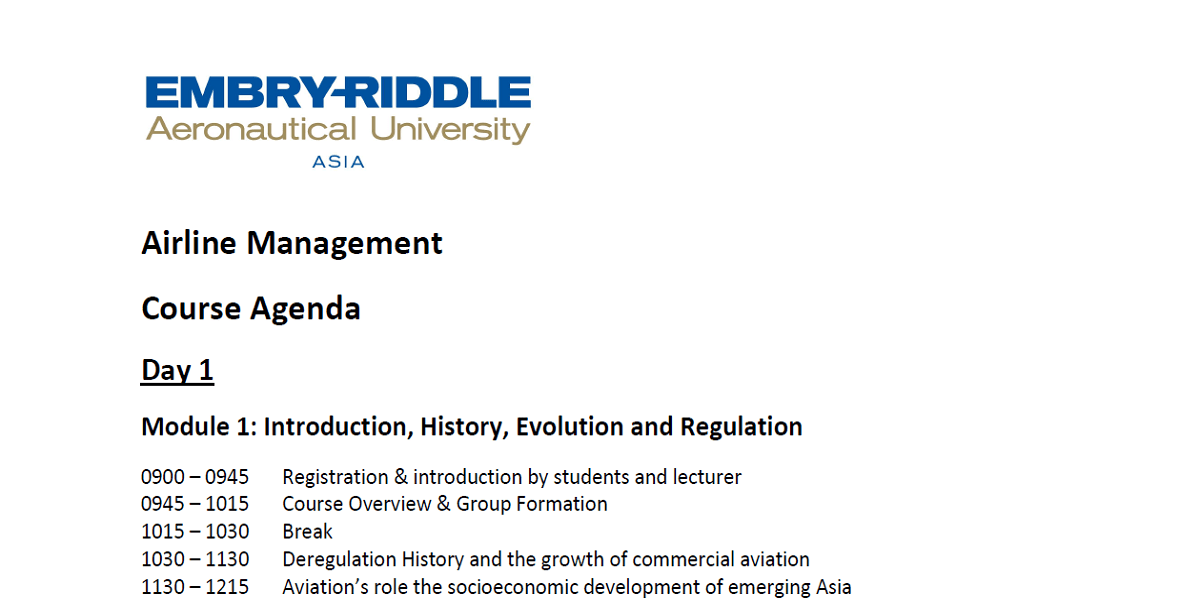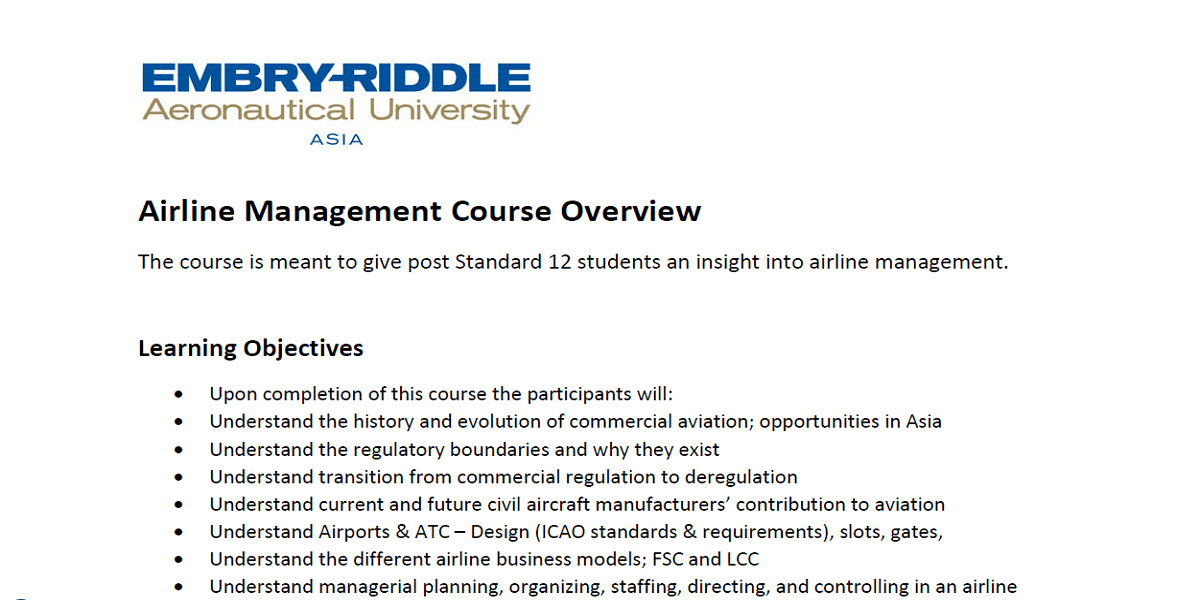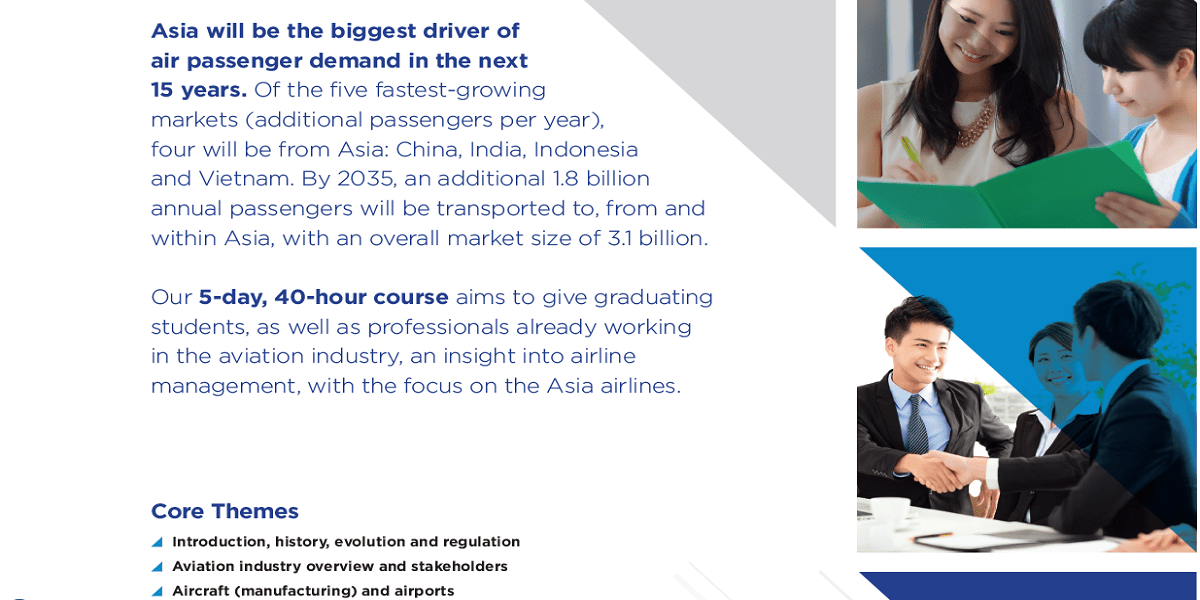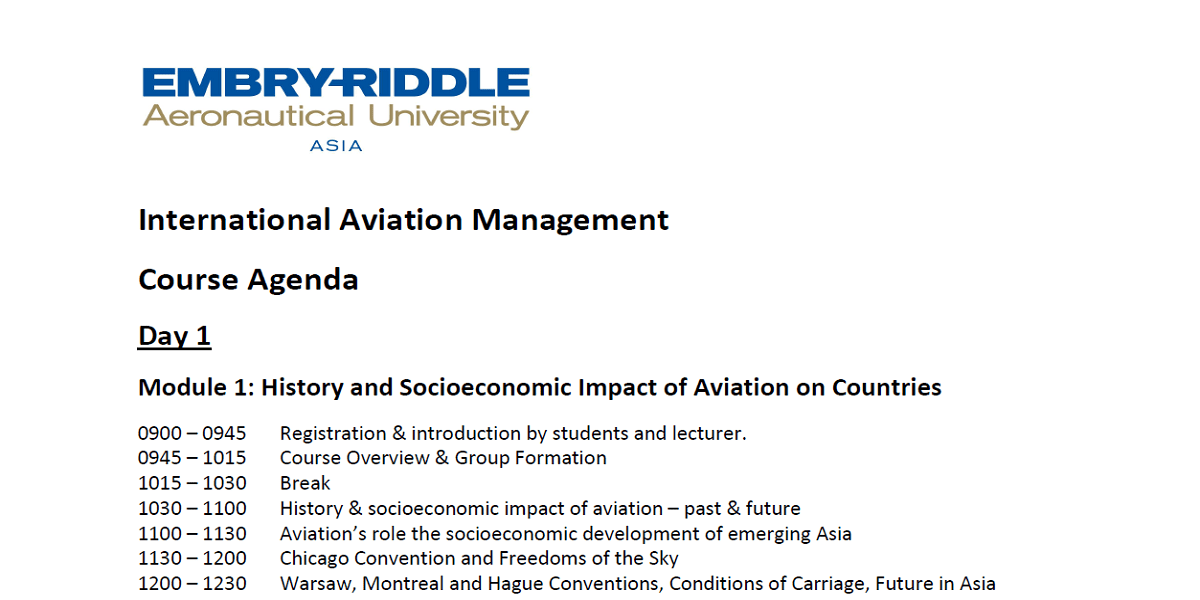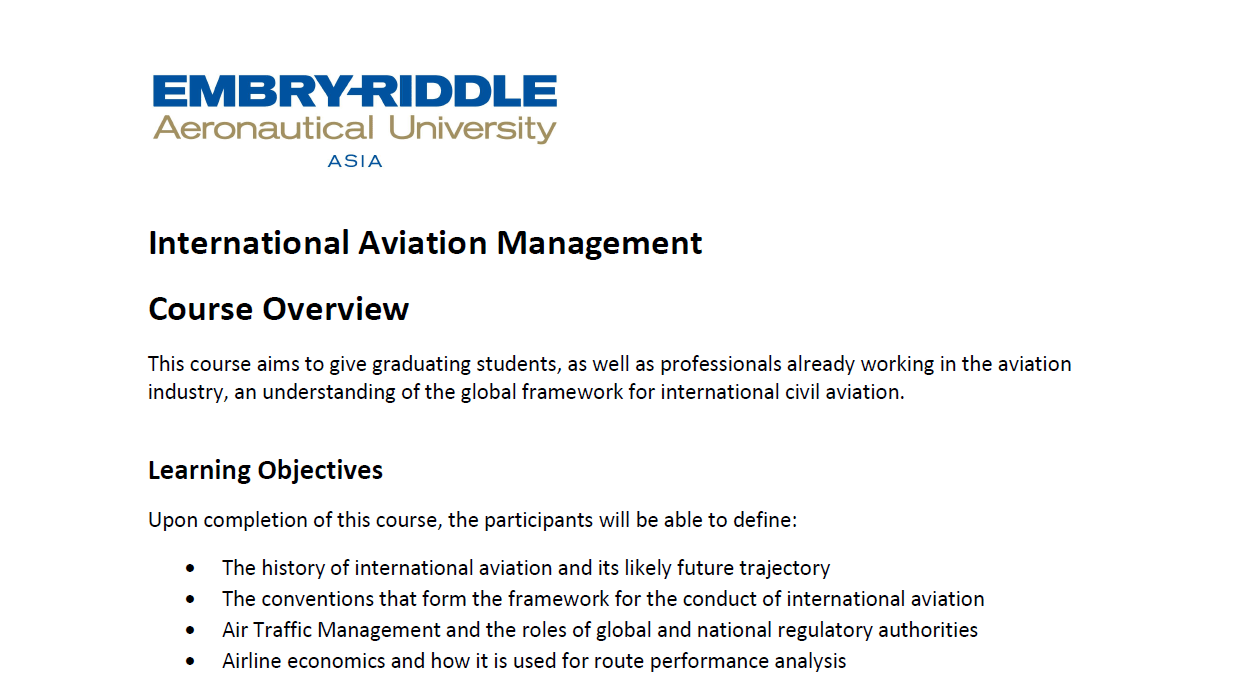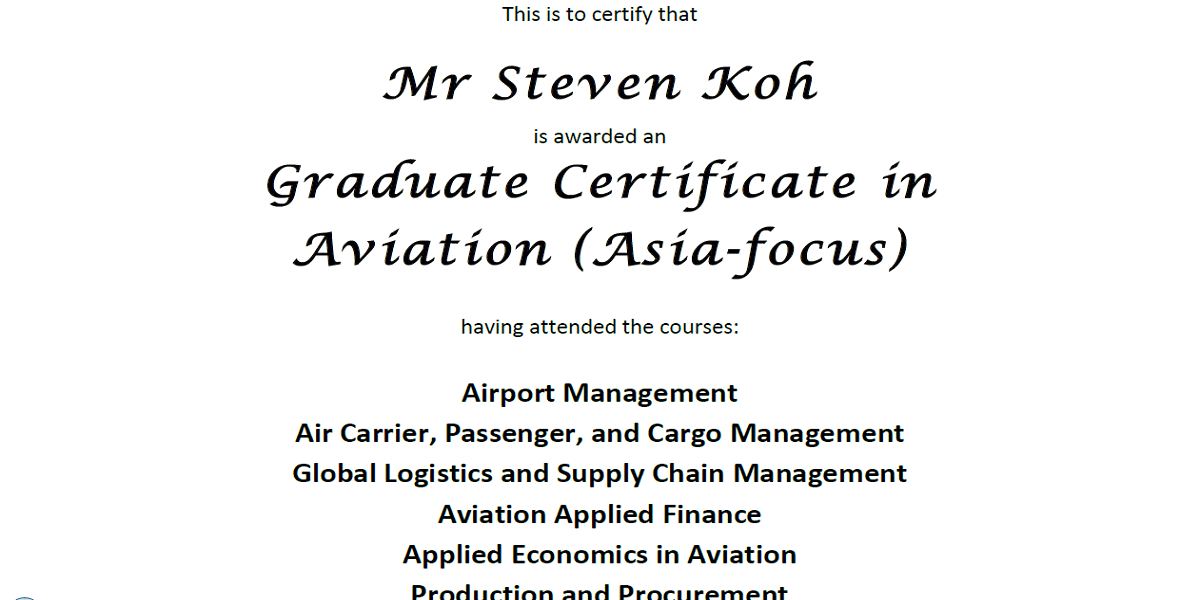Embry-Riddle International Aviation Management
Course Overview
This course aims to give graduating students, as well as professionals already working in the aviation industry, an understanding of the global framework for international civil aviation.

Course Information
Learning Objectives
Upon completion of this course, the participants will be able to define:
- The history of international aviation and its likely future trajectory
- The conventions that form the framework for the conduct of international aviation
- Air Traffic Management and the roles of global and national regulatory authorities
- Airline economics and how it is used for route performance analysis
- Airline cost breakdown and measures of productivity
- Air cargo and its role in a globalized economy
- Aviation safety and security in a congested sky and an insecure world
- Airport design and management
- Air Traffic Control (ATC) and its structure and components
- Sustainable aviation – protecting the environment is everyone’s priority
- Impact of technology on operations, distribution and passenger handling
- The challenges in Asia ahead that both governments and airlines face
- Employment opportunities within the aviation sector in Asia Pacific
- Innovation in the Airline Industry and a study on the value chain
Course Contents
- Route Planning: The Geographic impact on airlines and the role of Asia in the Global Network
- The likely trajectory of commercial aviation in Asia
- The Chicago, Warsaw and Tokyo Conventions; their resolutions that frame aviation today; e.g. Sovereignty of airspace, Freedoms of the Air, Limits of Liability, and a look at future legislation that will impact Asian markets
- Evaluate different airline business models and adoption in Asia Pacific
- The corporatization of Air Traffic Management
- Identify key stakeholders in the industry and the roles they play
- Study airline business models and evaluate competitive business strategies
- Airline economics and performance measurement
- Major cost components in an airline, their reporting ways (e.g. DOC, Indirect, Variable Fixed) and productivity measurements
- Air cargo: types, commodities, JIT to support global production chains, LSPs
- Safety: procedures, measurement, enforcement and standardization
- Security: necessity, cost, constraints and dilemmas
- Airports: design, operations, disaster/disruption management and economic characteristics
- ATC: communications, navigation, surveillance and weather systems; structure; congestion and future systems
- Sustainable aviation; noise, CO2 emission reduction
- Role of IT: CRSs, GDSs, ET, on-line distributions channels, impact on alliances (code shares) on distribution, social media in promotion
- Challenges ahead: the tussle between FSCs and LCCs, strategies for sustained profitability and infrastructure to support growth
- Aircraft Manufacturing: The role of OEMs in the industry and the future impact on Asian airlines
and their fleet planning strategy - Study on the organization structure of an airline and an outlook of the job landscape in Asia
Method
- Face-to-Face instructions in classroom
- Supported by collaborative group work and simple case studies
- Evaluation by examination
General Information
Duration: 40 hours
Participants: Maximum 30
Prerequisites (Students):
- Minimum educational level of participants: G.C.E. “O” Levels
- Conversant with MS Office (10 at least)
- Interest in aviation



